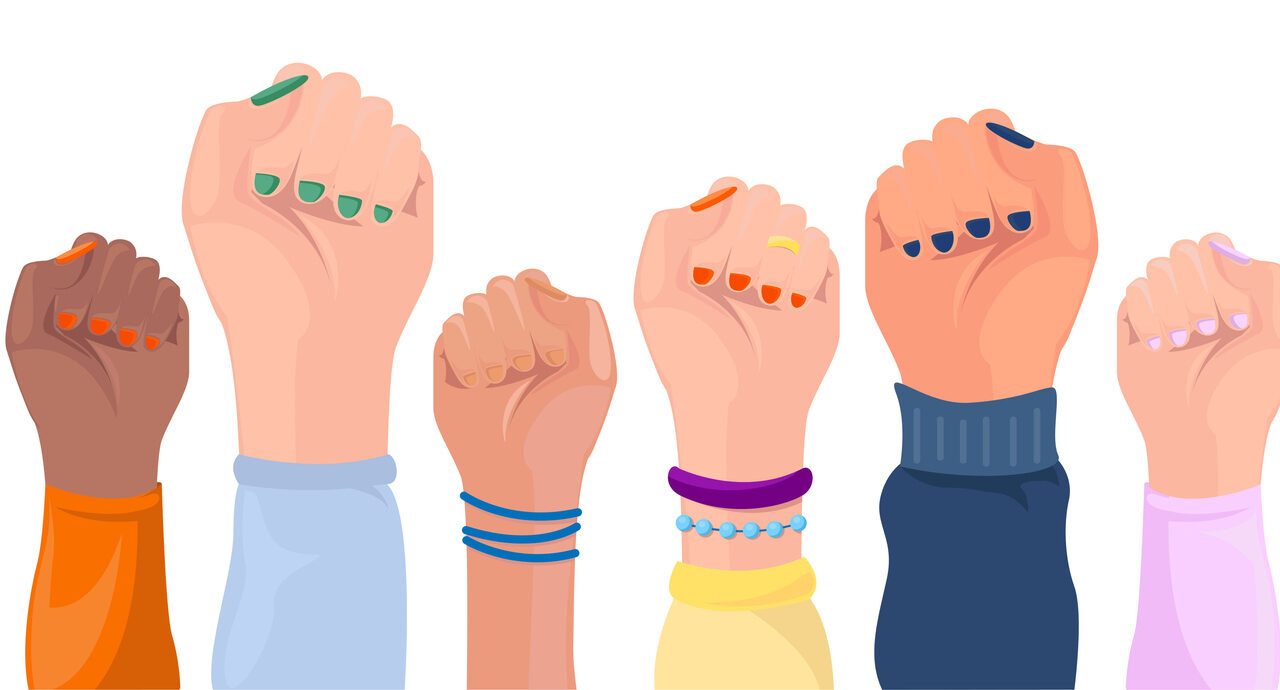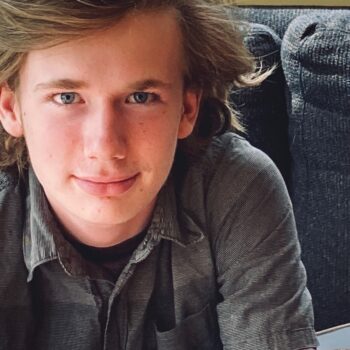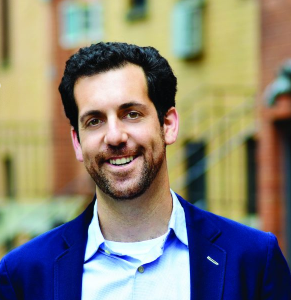The Providence Student Union (PSU) is a student-founded, student-led, and student-run organization that empowers students to fight for change in their schools and communities. This past year, PSU ran a successful campaign to remove police from schools — and use the funds to invest in school counselors. Scott Warren sat down with one of PSU’s leaders, Emma Jewett, to discuss how they won the Counselors, Not Cops campaign; the tactics they use to convince other students to take action; how they navigate their relationships with adult allies; and why youth organizing is such a powerful mechanism for change. The interview has been edited and condensed.
How did the Counselors, Not Cops campaign come about? What were some of the tactics that you used to convince the district to pass the resolution?
Counselors, Not Cops has been going on for, I think, five or six years at this point, which is a huge amount of time for someone my age. We published an op-ed, then we decided that we were also going to have this big walkout. And this was something that took a month or two of planning. Between the two days, 500, 600 kids [came out] from three schools, which is pretty significant. And that’s just a testament to the fact that the kids will come out, they will show up. It’s just a matter of giving them the spaces to be active in.
And even though the school board in Providence isn’t elected, it is still very much swayed by public opinion. This is not as controversial an issue [as] defunding the police, which is also something I’d support. But when the cops are beating up kids in our schools, when they’re instruments of state violence that are walking our hallways and intimidating Black and brown students and students with disabilities, it’s not a complicated issue to say these people need to get out. And if you disagree with us, especially when the youth voice on it is so unanimous, you just seem like a villain.
How did you convince students to participate in the walkout?
I think that in today’s day and age, when social media is so prominent, it doesn’t really require much radicalization. The biggest roadblock we encounter is that a lot of students see the School Resource Officers as their friends. They’re like, “Oh, he’s nice to me. He plays basketball with me. I have a relationship with him.” And we have to remind these students that, yes, that’s good, but that’s not his job. Everything that the School Resource Officer does that you like is outside the purview of his job. He’s there to be an instrument of state violence. And if you want someone who you can be friends with, who you can develop that relationship with, get a counselor, get a social worker. My middle school social worker, I spent hours and hours and hours in her office, and she probably saved my life. And if I had had a School Resource Officer instead of her, that would not have been the same thing. Sure, I could have been friends with them, but I wouldn’t have had that same relationship.
So, it’s mostly a matter of taking things from the personal to the political and then making people believe that their voices matter. It’s very easy to become what my generation calls a doomer and think that nothing we do will ever change anything. No one is going to listen to us. And that’s why the success of this action is so important.
What are the challenges in getting adults to take youth organizers seriously, and how do you mitigate those challenges?
You have to act like you’re going to get what you want. And I understand sometimes you need to be meek, but if you just walk into a meeting and are like, here are the things [we] want and give it to us or we’re walking out — sometimes that’s effective.
I’ve found that people like the superintendent, they really want to do whatever is easiest, so it’s just a matter of me making what I want to do the easiest path. If keeping School Resource Officers in our schools is easier because it’s the status quo and doesn’t require a change, then make the status quo unlivable. Make there be walkouts. Make there be op-eds. Make them constantly get in trouble publicly for not doing this thing, and then they’ll start to change. Because if it’s going to make their job easier, if they will have less work to do, and there’ll be less hot water with their bosses to do what they need to do to make our schools better, then that’s what we need to do. That’s it. That’s the point of organizing, to make the status quo so unlivable for those in power, they have to change something.
Sometimes organizers or advocacy movements don’t pay as much attention to young people because they’re young or they’re temporal or they’re only in places for a specific amount of time. What do you think the power of youth organizing is?
I think that that temporality is the power. I’m at my school for two more years. So if I want to get anything done, I have to get it done in those two years. We have an urgency that a lot of adults honestly just don’t have. Because if you work at a nonprofit, you can be working at the nonprofit for the next 10 years. And then you’re thinking on the scale of a decade, and I’m thinking on a scale of the next two years. So, when I want to plan an action, I’m not going to set a date six months in advance. I’m going to set a date two months in advance at the absolute latest and work my butt off to get it done because then I can do another thing in another two months.
If you’re 50, one year is 1/50 of your life. If you’re 16, it’s 1/16 of your life, and that’s a huge difference. The amount of time things take, it’s often much more irritating if you’re younger. It’s often like, why are we taking so long to get this done? But that urgency is what drives movements. [It’s] also why people burn out and are so prone to doomerism and just giving up. Because if you don’t achieve things on that small timescale, it can seem like a defeat. And that’s where I think the partnership between young people and adult allies really comes in handy because adult allies can be like, “Well, I’ve been in this fight for a decade; it’s not going to get resolved in a year.” And young people can be like, “Okay, but it could. We could resolve it this year, so we’re going to keep trying to.” And I think that dismissing young people based on their temporality would be dismissing them based on the exact thing that makes youth action and youth organizing so great.
You’ve talked about the adult staff that you have at PSU. What’s the power of having them work with you all?
I think that the power of having adult allies [is that] sometimes they can lend us a little bit of legitimacy, although sometimes it mitigates our message. So it’s an ongoing conversation, but the role of adult allies is exactly that, as allies. They aren’t there to further; they aren’t there to push us. They’re there to help us. And sometimes that means giving us a little nudge and being like, “Okay, let’s get things moving.” But often we’re like, “Okay, we want to get this thing done. We haven’t done this. How do we do this?” And the really amazing thing is that because there’s such a difference between a senior and a freshman, often we’re doing that within ourselves. [Adult allies] really just hang back and keep the organization running, keep the lights on, keep the water going. Often students are the ones who are telling them when and where we need the support, rather than adult allies pushing the movement forward and having us just help them out.
What are some of the big things that you’ve learned from being involved in PSU, and how will those lessons stick with you going forward?
The biggest thing I’ve learned from the Student Union is the power of having a lot of different voices. I’ve done some organizing on my own, and it can sometimes be more effective; I can just get it done. But usually I burn myself out a lot more quickly, and my campaigns are a lot less successful because you don’t have multiple people to help you, and you don’t have people to pick you up when you fall. Having that culture of support is the most important thing. Regardless of your organization, regardless of your movement, you need a culture of support so that you have continuity, longevity in your organization. Because if it wasn’t for the culture of support, I think almost every single member of our team would have been burned out and quit by now.


